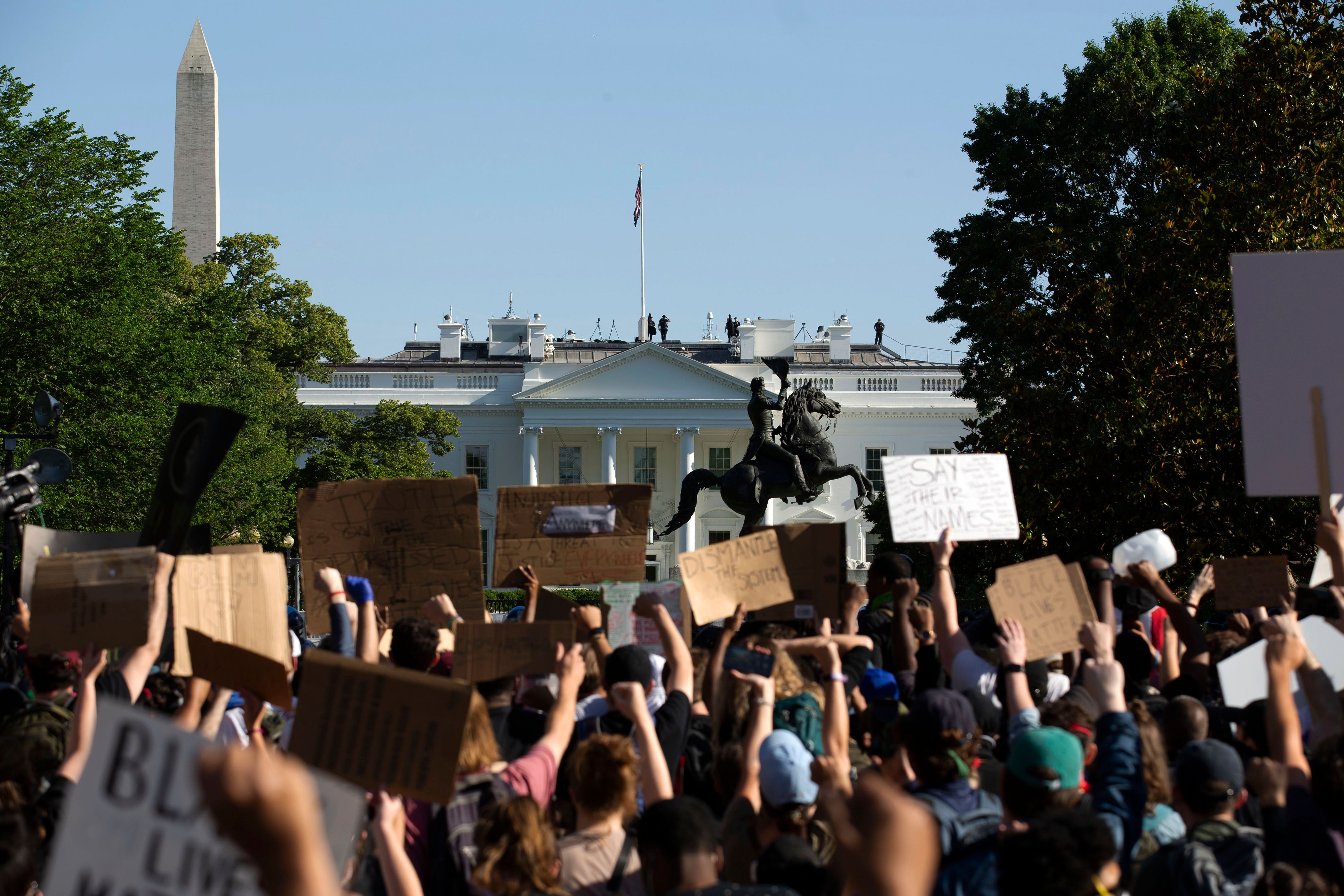
A group of Black photographers is suing digital media company BuzzFeed for using images they took of the protests that swept the United States this summer without their consent.
The complaint, filed in New York district court last month on behalf of six photographers—Vanessa Charlot, Dee Dwyer, Kay Hickman, Alexis Hunley, Tony Mobley, and Montinique Monroe—alleges that Buzzfeed’s news arm illegally embedded these artists’ Instagram posts in a June 3 article titled “17 Powerful Pictures Of The Protests Through The Eyes Of Black Photographers.”
The lawsuit comes at a time when the regulations and standards for embedding Instagram images remain murky in the courts—and media organizations are coming under fire for not paying Black creatives fairly for their labor.
Though the article was intended to celebrate these photographers’ work, it had the opposite effect, the complaint argues. “Instead of these Black photojournalists being fully and fairly compensated for licensing their photos captured on the front lines of those nationwide protests, BuzzFeed stole plaintiffs’ photos, ironically celebrating its heist in an online post,” the court filing reads. “BuzzFeed never secured a license or paid any of the plaintiff photojournalists for permission to embed and display their photos.”
Working in Los Angeles, St. Louis, Austin, Washington, DC, and New York City, the six photographers covered protests held in late May and early June in response to the murder of George Floyd. Days after the article was published, Hunley, one of the featured photographers, reached out to BuzzFeed questioning the decision to run her work without permission. The company responded offering the photographer $75 as compensation, but Hunley declined, according to the complaint.
Black Lives Matter, Philly Real Justice, and thousands of Philadelphians rallied on the steps of the Philadelphia Art Museum. Photo by Cory Clark/NurPhoto via Getty Images.
An editor from the news outlet then reached out to each photographer featured in the article notifying them of their inclusion, but did not ask permission to use their work, nor did they offer the compensation they offered Hunley, the complaint states.
A week after the article was published, BuzzFeed removed the pictures of the six photographers named in the suit and added a correction stating that the images were “removed because the original list did not meet our editorial standards regarding photo permissions.”
The lawsuit argues that each photographer is owed up to $30,000 in statutory damages for copyright infringement.
The suit may come down to whether or not BuzzFeed had the right to embed Instagram posts showcasing the photographers’ images—a question that many feel remains unanswered in the social media site’s terms of use. The complaint quotes a representative from Facebook Inc., which owns Instagram, on this point: “Our platform policies require third parties to have the necessary rights from applicable rights holders. This includes ensuring they have a license to share this content, if a license is required by law.”
However, the legal precedent is not so cut and dry. In April of this year, a New York district court judge dismissed a lawsuit brought by a photographer whose work was shared via Instagram embed on the website Mashable. The judge ruled that, in using Instagram, the photographer granted the site a license to share their work, and Instagram, in turn, granted a sub-license to Mashable. To make matters even murkier, the case was reopened in June after a judge in the same court came to the opposite conclusion in a case that featured a photographer suing the magazine Newsweek for a similar offense.
BuzzFeed was correct to commend these photographers for their work,” said the photographers’ lawyers, James Bartomei and Bryan Hoben, in a joint statement to Artnet News. “But for BuzzFeed to steal the very work it claimed to laud in the name of costless content was exploitation of the highest degree. Of course, the exploitation of black bodies for profit was, in many ways, what this summer’s protests were all about. So, it comes as little surprise that BuzzFeed’s abhorrent behavior has resonated with people well outside the professional photography and publishing industry.”
The lawyers representing BuzzFeed declined to “comment on an active matter.”